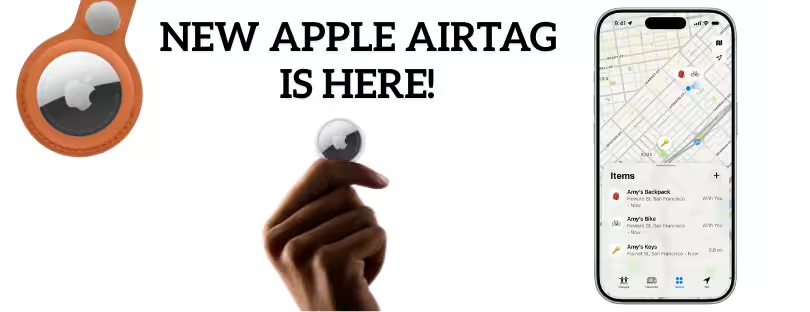
Black Friday: how to stay safe when shopping online?
Black Friday, is the time of the “madness” of discounts and promotions is at an all-time high. The world of cybercrime does not take a vacation, and it is at times like this when cybercriminals go “all in” on phishing schemes, as well as other malicious tactics, to take advantage of the most inattentive consumers. black friday security
Cipher, the cybersecurity division of the Prosegur Group, had already warned of the proliferation of malicious apps as well as fake websites, malware ads, and phishing schemes during this time.
According to data provided by Kaspersky, since October, a significant increase in suspicious online domains using the words Black Friday has been observed, with websites ranging from non-existent stores to convincing replicas of legitimate online sales platforms.
Black Friday Phishing Attacks Surge, Fake Stores on the Rise
In the first 10 months of this year alone, researchers at the cybersecurity company identified 30,803,840 phishing attacks targeting online shopping, payment systems, and banking institutions. E-commerce platforms were used as bait in 43.5% of total attacks.
During this Black Friday season, the most frequent schemes center on the creation of fake stores where victims pay for products they never receive, say Kaspersky experts.
Platforms such as eBay, Walmart, and Alibaba are also targeted by fraudsters, along with schemes where cybercriminals imitate Apple products and services. In the latter case, between January and October, researchers detected 2.8 million phishing attacks using the name and image of the Apple company.
Check Point Research (CPR) also warns of phishing schemes with fake stores, particularly luxury brands, from Louis Vuitton to Rolex, or those that have some popularity with consumers. Victims begin by receiving emails that promise steep discounts and messages that are manipulated by cybercriminals to imitate the communication style of these brands.
When clicking on the links included in the emails, victims are taken to websites that, at first glance, may appear legitimate but are actually fake. In addition to the possibility of losing money in fraudulent transactions, anyone who falls into this “trap” will also have their personal data stolen.
Another trend detected by CPR researchers involves malicious schemes that use the image and name of distribution companies, such as DHL. In October, experts recorded a 13% increase in the number of malicious files associated with this type of scheme which are often attached to phishing emails.
How not to fall into Black Friday “traps”
There is a whole set of measures that you must put into practice to reinforce security and protect yourself against threats in the online world. Times like Black Friday require special attention, and to help you, SAPO TEK has put together a set of useful recommendations.
-
Beware of offers that seem too good to be true black friday security
During the Black Friday season, we are “bombarded” with a myriad of tempting offers, whether via email, social media, or even SMS, with prices that, in many cases, seem unbelievable.
Maintaining distrust is a good way to separate the wheat from the chaff. Note that many offers are specifically formulated to get you to act instinctively, using the promise of deep discounts on products highly coveted by consumers.
It’s best to carefully analyze the offers you find when browsing the Internet or that you receive in your email inbox and on other online platforms. Discounts that seem too good to be true are a warning sign, but you should also keep an eye out for messages that pressure you, for example, to purchase products before it’s too late or that encourage you to act without thinking.
Several online comparison platforms can help you clarify your doubts and check whether an offer is really worth it. The KuantoKusta comparator is one of the best-known platforms and even has a tool that allows you to see how much you are saving on the Best Prices page. black friday security
The price comparison tool provided by DECO can also help you; simply enter the URL of the product page, or search by store and reference. The tool will then indicate whether or not the purchase is recommended, demonstrating whether there have been variations in the price in the last 7 days, 1 month, and 3 months.
-
Pay attention to the “bait” in the messages you receive
You should pay special attention to the messages you receive, not just those that appear to be more suspicious, as scammers very often imitate the image and style of well-known brands.
Look carefully at email addresses, in the case of email, and account names and phone numbers, in the case of messages on social media and SMS. If you are not sure, go to the brand or company’s website and confirm this information.
Communications made by brands follow a whole set of rules, which is why messages with errors and unusual language are reasons to be suspicious. We remind you that you should not click on the links of suspicious offers you receive or download any attachments they may have.
-
Check that the stores and online platforms you visit are trustworthy
When you visit a store’s website or an e-commerce platform, check whether the page follows security and data encryption protocols. You should look for the letters HTTPS in the URL and the icon of a closed padlock in the search bar of the browser you are using.
In addition to websites, many stores and platforms also have smartphone applications. You should only download these types of apps from official digital stores, such as the Play Store or App Store.
In general, trusted stores and platforms provide on their websites all the information that consumers need to know if there are conflicts or problems with purchases.
Does the website where you want to shop not have the name, address, telephone number, email, and tax number of the company or entity responsible for the store? Is there a section dedicated to payment, delivery, returns, and privacy policies? If the answer to these questions is no, it is better to shop on another platform.
But even if a store has this information available, it is recommended to do an online search to understand, through reviews and comments, whether other people who shopped there had a peaceful experience or whether their rights as consumers were disrespected.
-
Choose suitable payment methods black friday security
Does the website where you want to shop online not follow the security and data encryption protocol (HTTPS)? Are the payment methods provided secure? If this is your case, do not proceed with the purchase on the platform.
Methods such as ATM cash payments, temporary cards, or digital wallets are more suitable options for online purchases. Avoid paying by bank transfer or using payment methods you are unfamiliar with.
Remember: During the purchase, you should never provide confidential data. During this process, you must remain attentive and always confirm the total purchase price, as there are stores and online platforms that may charge additional expenses, such as shipping costs, for example, without informing you.
It is also recommended to keep a record of the different steps of the purchase, in case you encounter “unpleasant surprises”, saving the confirmation emails you receive and taking a screenshot of the pages visited.










